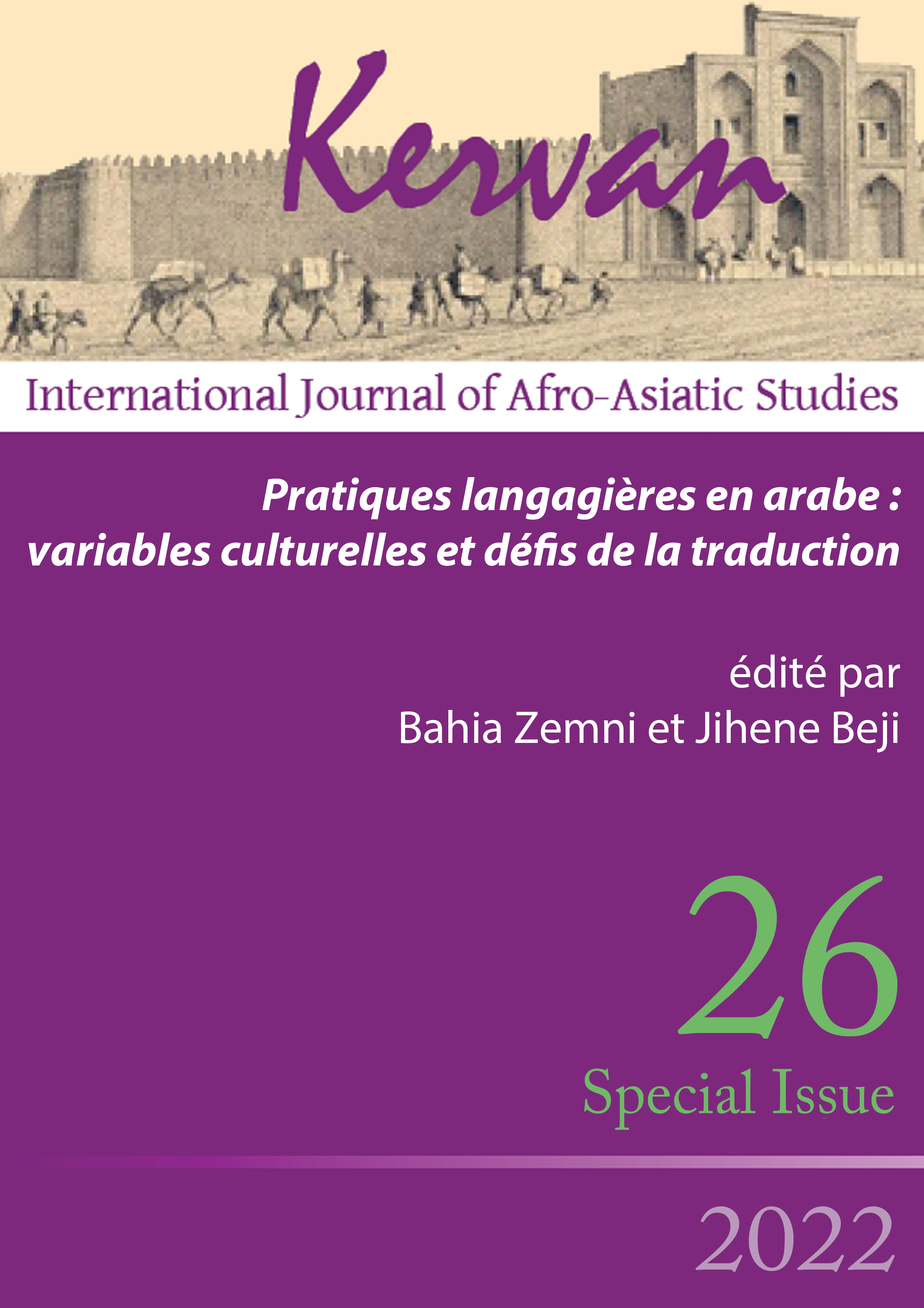Désamorçage et évitement dans la conversation quotidienne en arabe saoudien et tunisien
DOI:
https://doi.org/10.13135/1825-263X/6538Abstract
This study uses a bi-dialectal corpus, Tunisian and Saudi, to examine certain techniques of defusing and avoidance within the framework of a conversation likely to take a conflictual turn. Intersubjective relationships are not always harmonious, and therefore friction between interactants is foreseeable. Such friction can lead to a deadlock and to the cessation of the conversational process, jeopardizing social cohesion. Anticipatory techniques are thus considered to "defuse" a possible conflict and ensure the smooth running of the exchange. In the Arab-Muslim context, the use of certain formulas is part of this strategy of "politeness" and provide information on this Arab-Muslim communicative ethos. The characteristics of this ethos, both common and divergent between the Tunisian and Saudi dialects, make it possible to account for specificities and inter-dialectal convergences of a cultural nature.
Downloads
Downloads
Published
Issue
Section
License
Gli autori che pubblicano su Kervan accettano le seguenti condizioni:
- Gli autori mantengono i diritti sulla loro opera e cedono alla rivista il diritto di prima pubblicazione dell'opera, contemporaneamente licenziata sotto una Licenza Creative Commons - Attribuzione che permette ad altri di condividere l'opera indicando la paternità intellettuale e la prima pubblicazione su questa rivista.
- Gli autori possono aderire ad altri accordi di licenza non esclusiva per la distribuzione della versione dell'opera pubblicata (es. depositarla in un archivio istituzionale o pubblicarla in una monografia), a patto di indicare che la prima pubblicazione è avvenuta su questa rivista.


 The articles that have appeared on Kervan since 2016 are rated as Class A in the system of National Scientific Qualification (ASN, disciplines 10/N1 and 10/N3).
The articles that have appeared on Kervan since 2016 are rated as Class A in the system of National Scientific Qualification (ASN, disciplines 10/N1 and 10/N3). The journal has been approved for inclusion in DOAJ. The DOAJ listing of the journal is available at
The journal has been approved for inclusion in DOAJ. The DOAJ listing of the journal is available at  The journal has been approved for inclusion in ERIH PLUS. The ERIH PLUS listing of the journal is available at
The journal has been approved for inclusion in ERIH PLUS. The ERIH PLUS listing of the journal is available at  Kervan was just accepted for indexing in SCOPUS. This important milestone ensures that articles published in Kervan are easily found when searching for library, archives and Information science and it enables Kervan authors to keep track of how often their article has been cited by others.
Kervan was just accepted for indexing in SCOPUS. This important milestone ensures that articles published in Kervan are easily found when searching for library, archives and Information science and it enables Kervan authors to keep track of how often their article has been cited by others.

